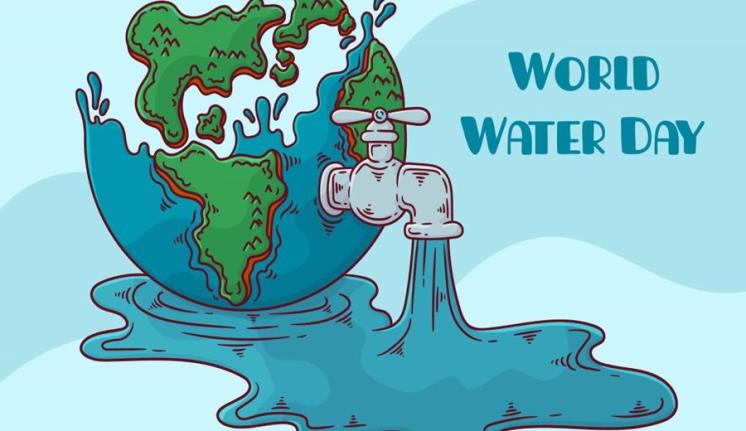Protecting water, one of earth’s most valuable resources is a matter for everyone.
Columban missionaries live and minister in some of the most populated areas on Earth, where access to clean water is amongst the poorest in the world. Whilst access to water is a fundamental right, each year roughly half of the world’s population experiences severe water scarcity. The alteration of nature in our times is adding further strain. Water is a central issue to the climate emergency, evidenced by the increasing number and duration of droughts since 2000 on the one hand, as well as the exponential rise in major flood-related events.[1] Moreover, threats to water from over-extraction, exploitation and pollution impact people and all forms of life in our earthly home.[2]
Columban missionaries working on the Philippines island of Mindanao in the 1960s and 1970s noticed the dire consequences of massive logging operations linked to unfair patterns of global consumption. After entire swathes of forest were removed, the exposed soil was lost from hillsides during monsoons, leading to silting of rivers, serious flooding in lowlands, damage to lowland farms and villages and loss of species of life that disappeared with their forest habitat.
In contrast to these destructive processes, Fr Sean McDonagh says, the Indigenous T’Boli people of Mindanao had learnt to live within nature’s limits by taking only what they needed, rotating farming sites and leaving enough undergrowth for the rainforest to replenish. For the T’Boli people, “the rainforest has a sacred reality and life flows from the bonds they have with the lakes, valleys, rivers and forests of their ancestral lands.”[3] Columban missionaries continue to live with and serve Indigenous peoples in Mindanao. Fr Vincent Busch says, “Their nurturing cultures continue to care for all in the earth community.”
Water and food security are also increasingly key concerns for Pacific Islanders who live in a region that is amongst the most vulnerable to climate change and natural disasters. Unable to adequately secure their basic needs due to repeated extreme weather events that lead to the erosion of topsoil, loss of food crops and salinization of fresh water, some communities are forced to permanently relocate. This dire situation places huge pressure on their daily lives, cultures and dignity. When healthy food options and access to clean water are no longer available, families are also “forced to resort to processed and imported foods that contribute to poor health.”[4] Here we see a cascade of effects that disproportionately harm people living in existing poverty and rural villagers. Columban missionaries have lived and served in Fiji for over seventy years, where communities have direct experience of these realities.
Learning to live within the limits of our earthly home is a theme that keeps coming up more urgently in our times. Lent is a time to prepare for the commemoration of the death and resurrection of Jesus. Our suffering world is crying out for new life and we can respond to that cry through practices that care for the earth and its people. Seeing that everything is connected there are many ways individuals and communities can act and advocate to build ecologically stable and economically just communities and support the transformation of hearts and minds.
For example, promoting the fairer use of water in daily life includes turning off sleeping technology that is powered by water-intensive energy, using water wisely, fixing leaks, considering the global impact of purchases on resources and people, planting gardens to slow the flow of stormwater and avoiding putting food waste, oils, medicines and chemicals down toilets and drains.[5]
Sr Caroline Vaitkunas RSM
Peace, Ecology and Justice Office
Columban Mission Centre, Essendon
[1] United Nations Climate Action, Water – at the centre of the climate crisis
[2] Sandra Díaz et al, The global assessment report on Biodiversity and Ecosystem Services Summary for Policymakers, (Bonn: Intergovernmental Science-Policy Platform on Biodiversity and Ecosystem Services IPBES, 2019)
[3] Vanishing Earth Full Documentary Fr Sean McDonagh, Fr Vincent Busch and Neal Frazer - Click here to watch: https://www.youtube.com/watch?v=TSMAE_diVNw
[4] Global Forum on Migration and Development Civil Society, Climate-Forced Displacement and Human Rights: Pacific Regional Policy Priorities (Brussels: June 2023)
[5] United Nations Sustainable Development Goals, The Lazy Person’s Guide to Saving Water





Comments (0)